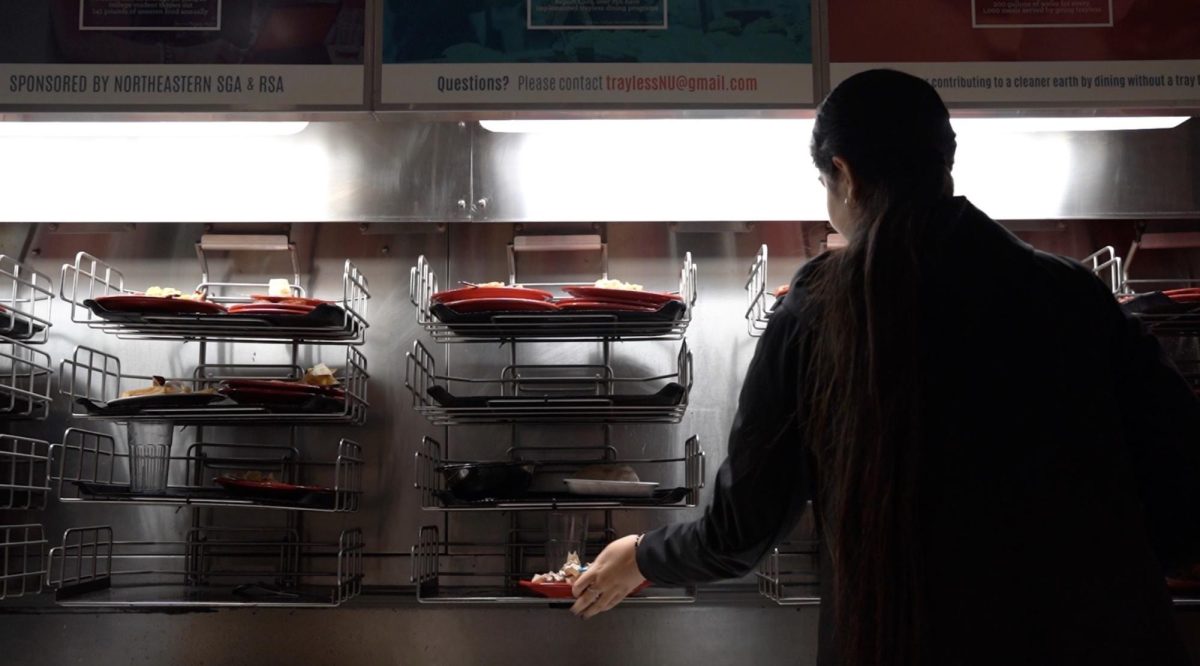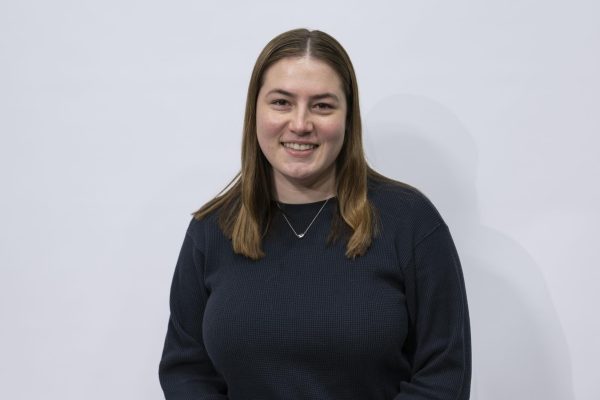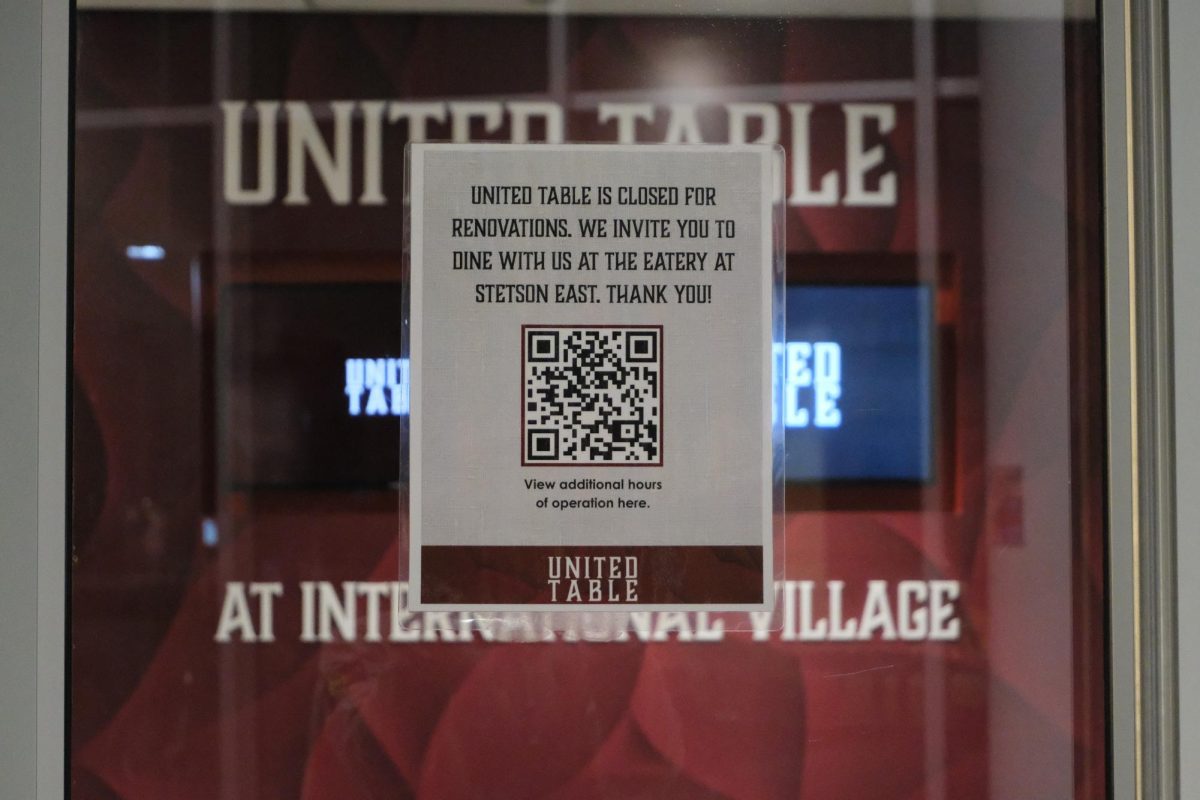Filip Nadratowski doesn’t know what Swipe2Care, Northeastern’s meal swipe donation program, is. Jacob Berman recalls getting emails about the program but is unclear on how to donate swipes. Kate O’Mahoney has donated meals several times but often forgets to go through the process.
Swipe2Care, established at Northeastern in 2018 through a collaboration by the Student Government Association, Dining Services and Student Life, allows students to donate leftover meal swipes to other students in need, according to Northeastern’s website. Students can donate up to three swipes per week using the Student Hub, and students in need can request up to two meals per week after filling out a form asking them to “briefly explain [their] circumstances.”
Though the program has been around for years, many students say they don’t know about meal swipe donations or wish the process was better advertised. Nadratowski, Berman and O’Mahoney all said they would donate more of their leftover meal swipes — or donate more consistently — if the process was simpler, automated and better advertised.
“I know a lot of people that don’t use a lot of their meal swipes,” said Nadratowski, a first-year Pharm. D. program student. “If other people could use them, that would be very helpful. [But] I’ve never heard of it, so [the outreach] needs to be better.”
As tuition rises each year, including the price of college meal plans, food insecurity is becoming more prevalent among the college-age population, prompting the establishment of programs similar to Swipe2Care at institutions across the nation. According to The Greater Boston Food Bank, 37% of public university students in Massachusetts are food insecure. This is more than the national average of 23% the U.S. Government Accountability Office reported in 2020.
The percentage is lower at private four-year universities. A National Center for Education Statistics report found that 18.8% of undergraduate students at private nonprofit four-year colleges and universities reported experiencing low or very low food security in 2020.
Though food insecurity among students grew in magnitude during the COVID-19 pandemic, it didn’t subside after it, either, said Kate Adams, the senior public policy manager for The Greater Boston Food Bank.
“Many people would be surprised to know that food insecurity is at the same levels as they were at the height of the pandemic, which is really a huge problem,” Adams said, adding that the Boston food bank has doubled the scope of its operations since 2020. “So many people are really challenged by the high cost of living in Massachusetts and housing and utilities and basic needs like food and health care.”
To battle hunger on campus, several other universities in the Boston area — including Emerson College and Boston University — have established programs that allow students to donate their meal swipes. Despite these initiatives, those involved in university food insecurity initiatives said the scale of the problem is difficult to measure.
“We still have work to do — I’m not going to deny there’s food insecurity on campus — but Swipe2Care is helping,” said Lily Pospesil, a second-year political science and economics combined major and chair of the Dining Advisory Board for the Student Government Association, or SGA. Pospesil added that while SGA itself does not have data on Swipe2Care, the dining board is trying to collect data and invite students to meetings so they can “advocate for themselves.”
Northeastern’s media relations did not respond to requests for comment on how many students donate and request swipes each semester and what the university is doing to address food insecurity. We Care, the office that runs Swipe2Care, directed The News to media relations.
Northeastern also has a community fridge on St. Stephen Street that allows students to donate and pick up free food. The fridge, which opened in April 2021, is maintained by the Mutual Aid Coalition, of which SGA is a member. The coalition is working to increase the number of fridges and food pantries around campus in the wake of the December 2023 disbandment of NU Mutual Aid, a campus charity that aimed to address a multitude of student needs, including access to food.
“Sunrise [Northeastern], Boston Health Initiative, a couple of other clubs and SGA got together to form a coalition to continue to maintain the St. Stephen Street food fridge,” said Zi Glucksman, a fourth-year politics, philosophy, and economics major and chair of SGA’s Campus Planning Advisory Board. “We’re working on some initiatives to get more fridges and food pantries around campus.”
Though these resources exist at Northeastern, many students said they are often under-advertised. Janelle Raymundo, the director of communications for national nonprofit Swipe Out Hunger, said outreach is an area where many campus initiatives fall short. Swipe Out Hunger collaborates with college students across the U.S. to establish programs like campus food pantries and meal swipe drives.
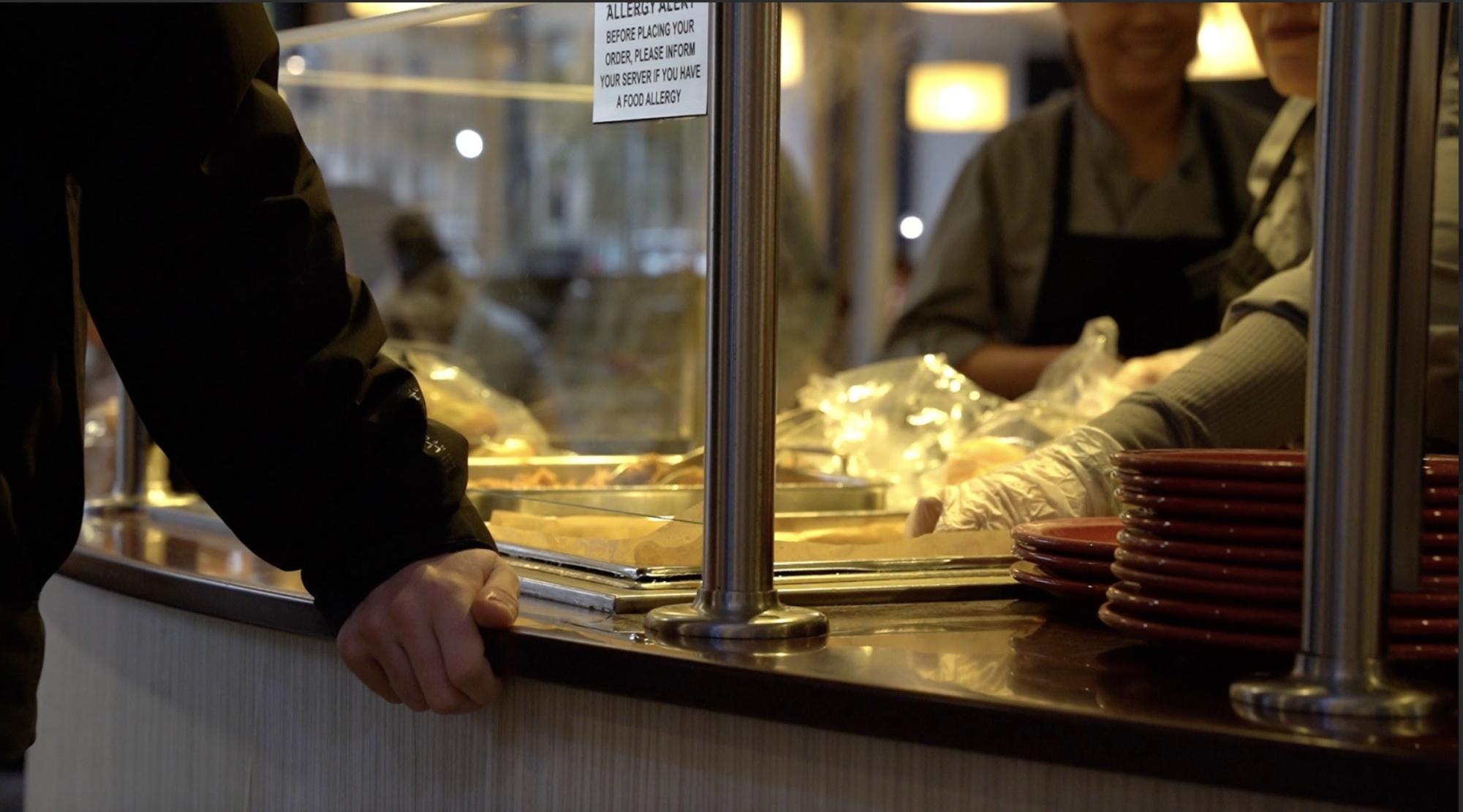
“One of the big issues with these programs is the question, ‘How do we reach students?’” Raymundo said. “A lot of successful ones are able to do a high level of outreach across the board, and it’s just something students know about, even from when they first step foot on campus.”
At Northeastern, there have been increased calls to automate meal swipe donations to make the process more approachable and user-friendly.
“I think having an automated feature would definitely make it so more swipes are being donated,” said O’Mahoney, a first-year behavioral neuroscience major. O’Mahoney also suggested the school make the program more personal by collecting anonymous anecdotes of people who have benefited from the program.
For other students, like first-year economics major Megan Biederman, another obstacle is figuring out how to donate swipes, not just remembering to do it.
“I [don’t know] how meal swipe donations work,” Biederman said. “Maybe I can sit down and investigate, and if I did that, I could donate. If I knew more about it, I would do it.”
Adams said the answer may lie in better informing students about food insecurity and ways to fight it.
“There needs to be infrastructure investment in figuring out how to make the system run effectively,” she said. “So many college students might feel alone or ashamed to be needing these kinds of services, but I think education and public awareness can be two effective ways to combat it.”
In fall 2024, Northeastern revamped its dining plans, allotting a fixed number of meal swipes by semester instead of by week. Now, students can buy 100, 150, 180, 225 or an unlimited number of swipes per semester, with the lowest costing $2,700 and the highest being $4,300.
“I have the unlimited meal plan, and I have lots of meals that I don’t use and I could donate,” Biederman said. “If people know about [Swipe2Care], other students could have access to meals, and that’s really important for them.”
To fight meal insecurity, many institutions are also turning to food waste to reduce the amount of food being thrown away in dining halls.
According to the U.S. Department of Agriculture, between 30% to 40% of the food supply goes to waste. In 2010, that amounted to 133 billion pounds of food worth $161 billion.
Pranali Ashara, a fourth-year environmental science and chemistry combined major and president of Composting at Northeastern said the solution to food waste and insecurity is to start from the beginning of the chain.
“In the food waste hierarchy, the top is always source reduction,” Ashara said. “It’s always looking at not even wasting food to begin with … you should just give it to somebody that needs it.”
Northeastern’s food waste reduction program focuses more on the back-end, emphasizing composting. According to a report by the U.S. Composting Council, Northeastern has “maintained a thriving composting program since 2006, diverting an estimated 839 tons of food waste to composting in 2022.”
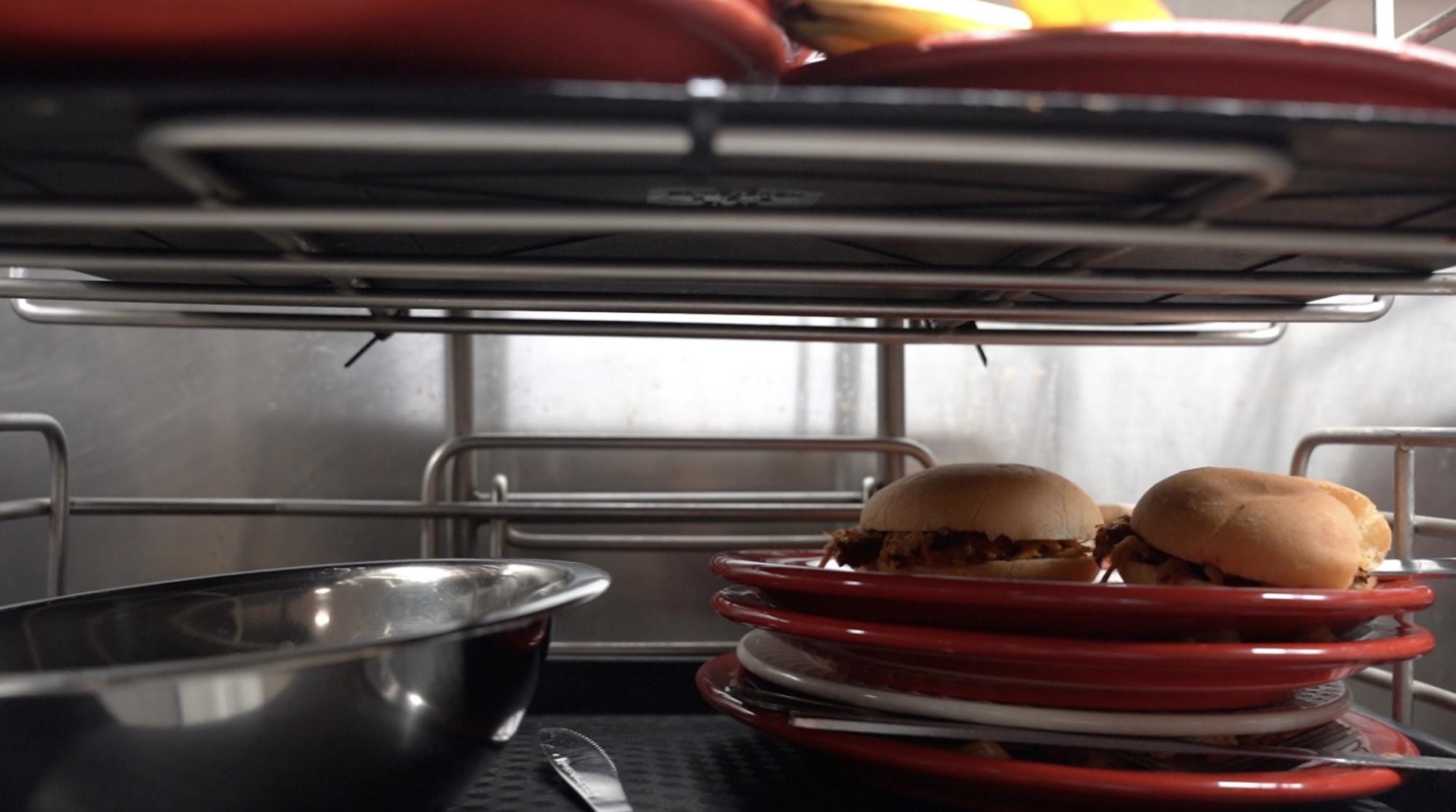
“Ideally, people just take on their plate what they need, but the compost system has been super effective,” said Julian Herzing-Burkard, an international business major and SGA vice president of campus affairs.
Herzing-Burkard also highlighted Northeastern administration’s recent work with Too Good To Go, a “social impact company” that allows users to buy surplus food from restaurants and stores at a reduced price. Students can purchase leftover food from restaurants in Curry Student Center by using a Northeastern-specific code, purchasing food at a heavy discount when it would otherwise go to waste.
Students suggested Northeastern could work on reducing food waste at its source by taking a different approach to serving food. O’Mahoney said this may begin with allowing students to indicate how big of a portion they want to the employees since most stations are not self-served.
Ashara said the problem doesn’t lie in the way Northeastern works to minimize waste, but how it reaches out to students about its initiatives.
“The big thing Northeastern can do is outreach and education,” Ashara said. “That’s the biggest issue we’ve seen so far — we know people care.”





